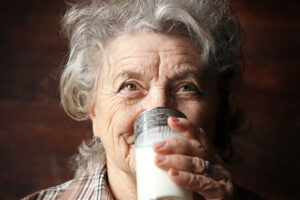Risk Factors of Dehydration in Seniors

Home Care Assistance in Old Bridge NJ
As fall rolls in, it’s still important for seniors to remain hydrated so that they can avoid health issues related to dehydration. Many people think that dehydration is only a problem for seniors when the temperatures are climbing, but that’s not the case. Dehydration can occur at any time, even if temperatures are cooling down outside. What’s most important is having a plan in place, including home care assistance, to help seniors hydrate and stay healthy.
Dehydration Is Big for Seniors
Not getting enough water is a problem for anyone, but it’s a massive issue for seniors. The reason for that is because of all of the complications that an aging body faces when it doesn’t have enough water. Some of those complications include:
- Urinary tract infections
- Decreased kidney function
- Dry skin
- Increased risk of pressure sores
- Joint pain
- Muscle cramps
- Cognitive trouble
- Low blood pressure
Seniors who are dealing with other serious health issues may face worsening of those conditions if they’re dehydrated, too.
Risk Factors for Dehydration in Seniors
But why are seniors so impacted by dehydration and why are they at greater risk? The sense of thirst changes as seniors age, so they may not feel thirsty even though their bodies need more water. They may also have memory issues that keep them from remembering to drink water. If seniors are bedridden or have serious mobility concerns, they may not be able to get up and get water when they need it. Also, medication side effects are a concern. Finally, fear can be a risk factor, especially the fear of falling or the fear of incontinence.
Detecting Dehydration Quickly
It helps for family caregivers to recognize dehydration as quickly as possible in seniors so that they can get them the help that they need. Some of the signs of dehydration in seniors include:
- Dry mouth
- Inability to sweat
- Trouble regulating temperature
- Low urine output
- Dark uring
- Constipation
- Dizziness
- Headaches
- Confusion
If seniors are exhibiting any of these signs, they should see their doctors right away. Family caregivers may worry that they’re not there to see their seniors as much as they need and want to be. That’s where home care providers can save the day. They can watch for signs of trouble and keep everyone aware of what’s happening.
Maintaining Proper Hydration
It can help significantly for seniors to eat foods that have a high water content. This can help to improve hydration and even prevent dehydration. Making sure that water is available throughout the house helps, too. Scheduling times for water breaks might be another way for families to keep their seniors hydrated. Making it a game instead of a chore can really help.
Enlist Some Help in the Battle Against Dehydration
This may not be something that seniors can tackle completely on their own. Having home care assistance right there with them can make a big difference in sticking to their hydration plans as closely as possible. Elder care providers can also notice other contributing factors that might need to be added to the plan to make it more effective.
Staying well-hydrated is much more important than many seniors realize. Home care assistance and a thorough plan can do a lot to help seniors avoid the bigger complications of dehydration.
If you or an aging loved one is considering home care assistance in Old Bridge, NJ, please contact the caring staff at Care Street Home Care today. Call (732) 607-8870.
- Signs Your Senior Parent Needs Home Care Assistance - January 17, 2025
- Hearing Rehabilitation: Empowering Seniors for Better Living - January 10, 2025
- Understanding How Cartilage Changes Over the Years - January 3, 2025
